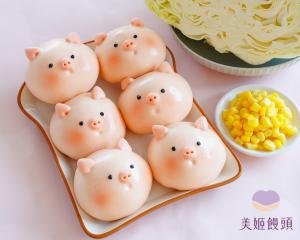
Discover Bao: The Rising Star in American Cuisine from Asia. Explore Its Nutritional Benefits and Versatility as a Daily Meal Staple.
PLEASANTON, CA, UNITED STATES, January 2, 2024 /EINPresswire.com/ — Introduction to Bao/Buns
Bao, often referred to as buns, represent not only a culinary delight from East Asia but also a versatile and nutritious option for everyday meals. Originating in Chinese cuisine, bao has traveled across continents, evolving into various forms such as the pillowy steamed versions and the crusty baked ones, frequently filled with an array of ingredients from savory meats to sweet beans.
Nutritional Profile
The fundamental ingredients of bao, including wheat flour, yeast, and water, render it a significant source of carbohydrates, essential for providing energy for daily activities. A standard steamed bao typically contains about 200-250 calories, positioning it as a moderate-calorie food option. Additionally, bao serves as a source of protein and dietary fiber, particularly when made with whole grain flours or filled with vegetables or lean meats.
Health Benefits
The incorporation of bao in diets is observed to bring several health benefits. The fiber content in bao aids digestion and contributes to maintaining a healthy gut. Bao filled with vegetables or lean meats provides essential vitamins and minerals, supporting overall nutrition. Furthermore, the protein content in bao, especially when it includes meat or tofu, is beneficial for muscle repair and growth.
Versatility in Diet
The appeal of bao lies in its versatility. A small steamed bao with a light vegetable filling can serve as a nutritious option for breakfast. For lunch, bao can transform into a more substantial meal with fillings like grilled chicken or tofu. During dinner, bao complements soups and salads well, making for a balanced meal.
Customization for Dietary Needs
Bao is adaptable to meet various dietary preferences and restrictions. Using gluten-free flour can make bao suitable for those with gluten intolerance. A vegan diet can be accommodated by stuffing bao with a mixture of vegetables, mushrooms, or tofu. For calorie-conscious individuals, opting for whole grain flours and lean fillings such as chicken breast or fish can make bao a healthier choice.
Recipes and Preparation Tips
The preparation of basic bao dough involves mixing flour, yeast, a pinch of sugar, water, and a small amount of oil. After kneading and allowing it to rise, the dough is ready to be shaped and filled as desired. A healthier version can be made using whole wheat flour and natural sweeteners like honey. Steaming bao results in a light, fluffy texture, whereas baking them yields a crispy crust.
Recipe: Whole Grain Vegetable Bao
– Ingredients include whole grain flour, yeast, water, salt, sugar, mixed vegetables (carrots, cabbage, bell peppers), soy sauce, ginger, and garlic.
– The method entails preparing the dough with whole grain flour and sautéing vegetables with ginger, garlic, and soy sauce for the filling. The dough is then shaped into small rounds, filled with the vegetable mixture, and steamed for 12-15 minutes.
Conclusion
Bao presents a delightful and nutritious option for those seeking to diversify their diet. Its endless variety and adaptability cater to various tastes and dietary requirements, making bao a versatile and healthy food choice.
References and Further Reading**
Further information on the nutritional value of bao and diverse recipes is available through culinary websites and nutritional guides that delve into Asian cuisine and its health aspects.
Bao Babies Team
Bao Babies
+1 415-649-0880
[email protected]
Visit us on social media:
Facebook
Instagram
TikTok
Miss Meiji teach you to make lovely cloud buns/ bao
![]()
Originally published at https://www.einpresswire.com/article/678269994/bao-a-new-tasty-addition-to-the-american-dinner-table-for-a-healthier-diet





